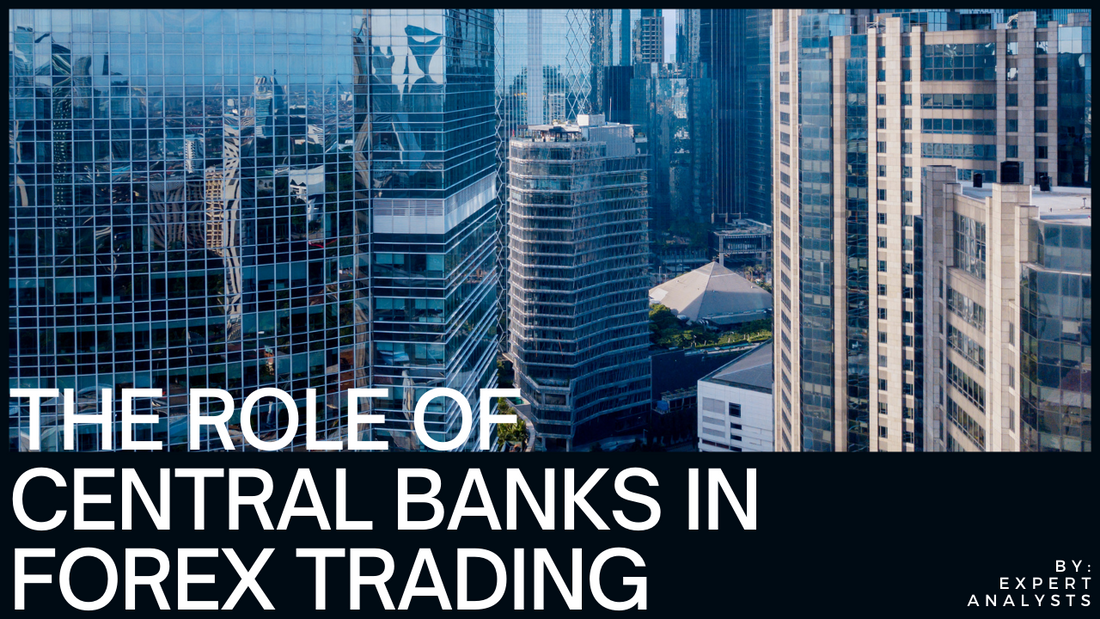
How Central Banks Impact Forex Trading
Share
Forex trading, also known as foreign exchange trading, is the buying and selling of currencies on the global market. It is a decentralized market where participants, such as banks, financial institutions, and individual traders, exchange currencies based on their current value. One of the key factors that can significantly impact forex trading is the actions taken by central banks. In this blog post, we will explore how central banks influence the forex market and what traders need to know about these impacts.
What is a Central Bank?
A central bank is an institution responsible for managing a country's money supply, controlling interest rates, and ensuring the stability of the financial system. Central banks play a crucial role in the economy and have the power to influence various aspects of it, including forex trading.
Interest Rates and Monetary Policy
One of the primary tools central banks use to impact forex trading is through changes in interest rates. By increasing or decreasing interest rates, central banks can influence the value of a country's currency. When a central bank raises interest rates, it attracts foreign investors seeking higher returns on their investments. This increased demand for the currency strengthens its value in the forex market.
Conversely, when a central bank lowers interest rates, it makes the currency less attractive to foreign investors. This can lead to a decrease in demand for the currency, causing its value to weaken in the forex market.
Quantitative Easing
Another tool central banks use is quantitative easing (QE). QE is a monetary policy in which a central bank purchases government bonds or other financial assets to inject money into the economy. This increase in the money supply can lead to a decrease in the value of the currency.
Forex traders closely monitor central banks' decisions regarding QE as it can have a significant impact on currency values. If a central bank announces an expansion of its QE program, it can lead to a depreciation of the currency. On the other hand, if a central bank decides to taper or end its QE program, it can strengthen the currency.
Forward Guidance
Central banks also provide forward guidance, which is an indication of their future monetary policy decisions. This guidance can influence forex trading as it provides insight into the central bank's stance on interest rates and other policy measures.
For example, if a central bank signals that it plans to raise interest rates in the future, it can lead to an increase in demand for the currency. Traders may start buying the currency in anticipation of higher returns. Conversely, if a central bank hints at a potential interest rate cut, it can weaken the currency as traders may sell it in anticipation of lower returns.
Political and Economic Stability
Central banks also play a crucial role in maintaining political and economic stability. Any political or economic instability can have a significant impact on forex trading. Traders closely monitor central banks' actions and statements to assess the overall stability of a country's economy.
For example, if a central bank takes measures to address economic challenges or provides reassurance about the country's financial stability, it can boost confidence in the currency and attract investors. On the other hand, if a central bank fails to address economic concerns or creates uncertainty through its actions, it can lead to a decrease in demand for the currency.
Conclusion
Central banks have a profound impact on forex trading. Through their decisions on interest rates, quantitative easing, forward guidance, and efforts to maintain stability, central banks can influence the value of currencies in the forex market. Traders need to stay informed about central bank actions and statements to make informed trading decisions. Understanding the role of central banks is essential for any forex trader looking to navigate the dynamic and ever-changing forex market.



